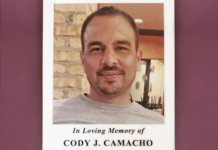
In the past decade, suicide has become an epidemic plaguing the military and veteran community, with upwards of 20 suicides a day by veterans, service members, Guard Members and Reservists. To play a role in combatting this crisis, Mad in America has developed this resource section for veterans, service members, and their families to identify risks associated with the prescribing of antidepressants and other psychiatric medication, and to identify alternatives to the dominant drug-based model of mental health. If you have queries about this page please get in touch with Robert Whitaker at [email protected].
Mad in America is currently collaborating with the Grunt Style Foundation, a non-profit veterans organization, that has mounted a campaign for “informed consent” and safe deprescribing of psychiatric drugs. Mad in America is supporting its WAR CRY FOR CHANGE initiative by publishing the stories of veterans harmed by psychiatric drugs. Members of the veterans community can submit their stories to the Grunt Style Foundation here.
Dear Psychiatrist – I Survived
That Others May Live: An Airman’s Mental Health and Medication Hurricane
Training Days: Surthriving an Execution, Antidepressants, then Myself — A Cop’s Tale
Green Star Mother Demands Answers from VA Secretary
My Red October – An Army Veteran’s Crucible to Recovery
“War Cry For Change”: Veterans Launch Campaign for Informed Consent and Safe Deprescribing at the VA
From the Archives
Tell Your Story
Mad in America is supporting the Gruntstyle Foundation’s initiative by publishing the personal stories of veterans and their families who have suffered harms from psychiatric drugs. Members of the veterans community can submit their stories to the Gruntstyle Foundation here.
Archives of Personal Stories
An archive of personal stories by veterans and their families and friends can be found here.
On Suicide
For info on suicide and antidepressants, see MIA report on Suicide in the Age of Prozac.
Resources
There are multiple resources on Mad in America for researching the effects of psychiatric drugs, alternative non-drug therapies, and withdrawal from such medications. These various resources are listed in the menu bar under drugs and parents. Specifically:
In-depth reviews of antipsychotics and antidepressants; non-drug therapies for anxiety, depression and PTSD; and withdrawal resources, includes a directory of providers who will support people who want to taper from psychiatric medications. The Parents section provides similar reviews of treatments for children and adolescents.
In addition, you can access our archival reports of findings about psychiatric drugs that have been published in peer-reviewed journals.

















